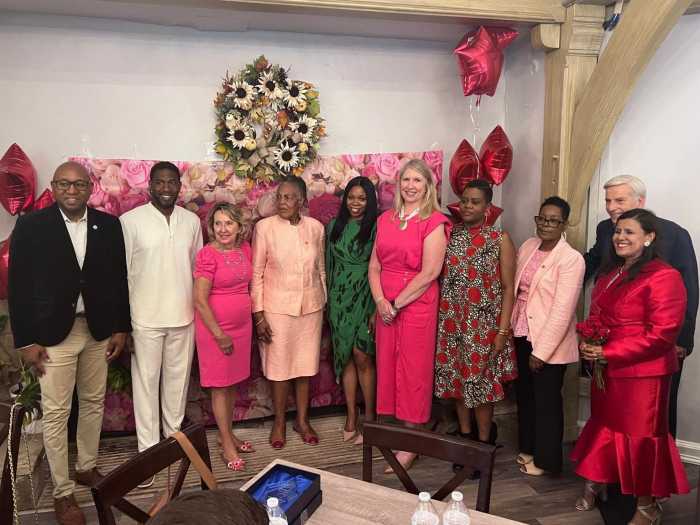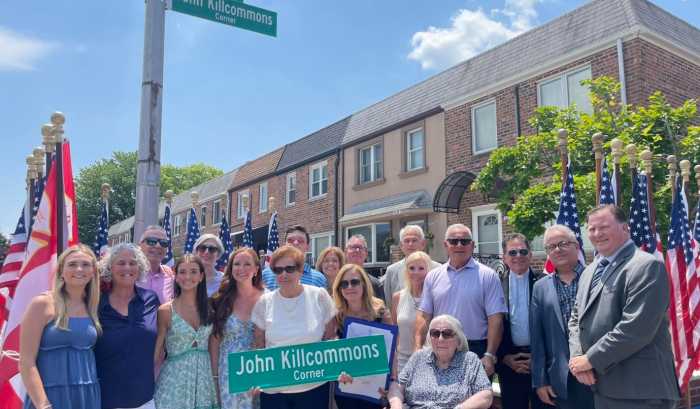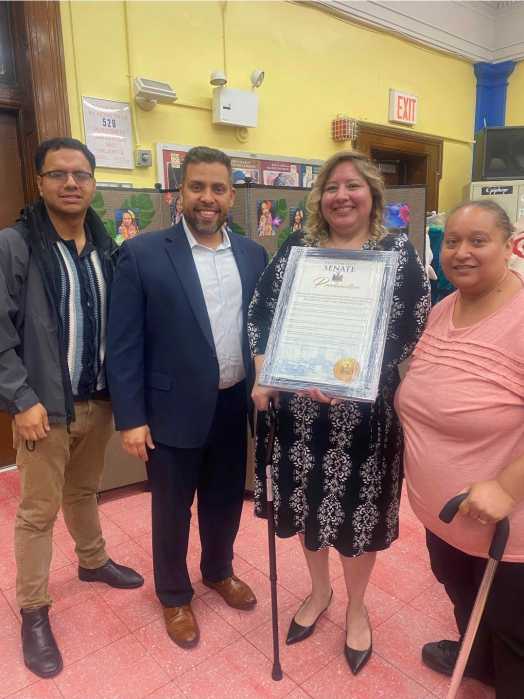By Graciano Clause
The York College Association of Black Journalists partnered with black voices in the media last week to inform the Jamaica community about the crisis in black media.
The jam-packed panel discussion held in York’s faculty dining room brought out many students, Queens residents, activists, and community groups. The event included NY1 news anchor Cheryl Wills, New York Amsterdam News columnist Herb Boyd, radio broadcaster Gary Byrd, Contributing Editor of the Queens Tribune Marcia Moxam Comrie, and Co-founder of the Millions March NYC Synead Nichols.
The event was held not only to mark Black History Month but to create awareness about the endless realities blacks are faced with globally.
Wills, who moderated the Feb. 24 panel, said there is no reason to adhere to the negative content bringing black people down in the media. Years of racially degrading portrayals of blacks in pop culture and the media have done their damage, she said. Not only does society feed negative stereotypes to allow oppression to continue, but children incorporate these stereotypes by believing them due to the lack of positive images put out.
Wills along with the panelists said blacks need to have a greater representation in the media to make the world a better place now and for the generations to come.
Boyd noted the importance of supporting black business.
“You got to go beyond saying you support a representation of you in the media,” Boyd said. “You have to buy the paper, educate yourself on what is happening, and share it on these social media. Communication is made easier now, so we have to use it.”
He mentioned how WWRL, New York’s last black-owned radio station, is not black owned anymore.
“There is no diversity in the educational realm,” Boyd said, referring to black state’s role as a tool for education. He stressed how black-owned media organizations can survive through online subscriptions. Geometric growth can be achieved by network marketing.
“We have a new opportunity for communicating and having an independence in the media if we do this simple thing called the seven keys,” he said. Unity, self-determination, collective work and responsibility, cooperative economics, purpose, creativity, and faith. With those key issues addressed, Boyd believes an immediate power base can be established to promote a positive media outlet for blacks.
“Instead of uplifting each other, we put each other down,” Byrd said. “There used to be a time when black people used to encourage each other to do better, but now we’re only competing with each other and making the breadwinners win.”
Nichols, 24, who is closer to today’s youth, shed light on the problem, saying there are fewer black-owned news organizations because of the unwillingness to network with social activists on social media.
“The Internet is a tool, but people don’t use it,” she said. “We can start so many revolutions and online news websites if more of us had the guts to just use what we already have to start a discussion.”
During the panel discussion, Wills said black media is in crisis despite the accomplishments of black journalists. She said many reality television shows project black people in a negative light, which influences the black youth.
Marcia Moxam Comrie, contributing editor of the Queens Tribune, chimed in with her perspective on the crisis at the local level in Jamaica.
“I always want to make sure that our stories — be they hyper local or on a wider spectrum — for us to understand that when you have these police brutality cases, it behoves us on a local level to bring these issues to the table,” Comrie said.



































